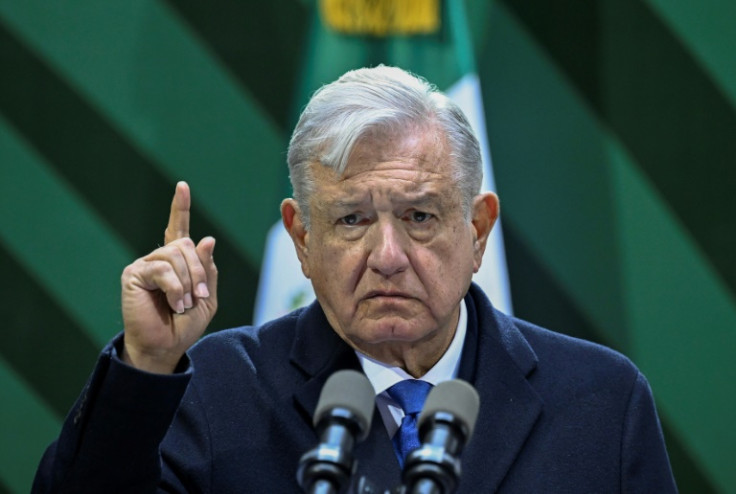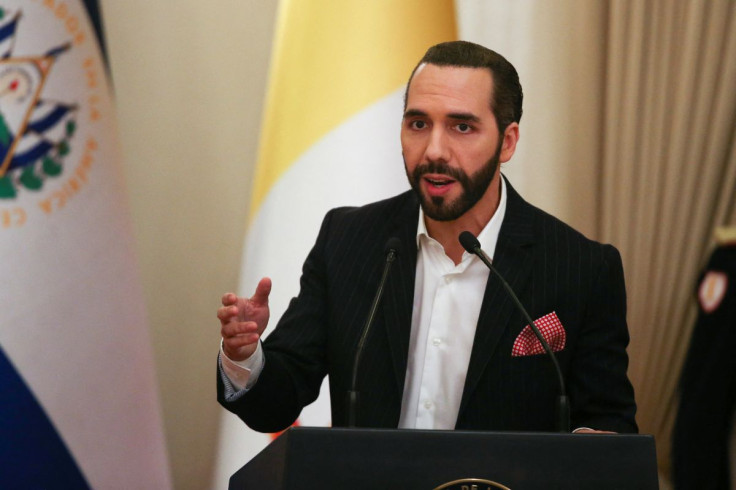
During his daily televised briefing on the morning of February 22, Mexican President Andrés Manuel López Obrador, commonly known as AMLO, read aloud the phone number of a New York Times journalist. It was after the outlet published a story -- citing U.S. records and three unnamed officials -- that the U.S. had previously investigated whether people close to the president had taken money from drug cartels.
Mexico's freedom of information institute immediately opened an investigation into the president's conduct, and, a few days later, journalists and academics published an open letter calling on government officials to exercise their right of reply without putting journalists in danger.
Another testy exchange took place in the region a few weeks before: on February 5, hours after proclaiming victory in El Salvador's elections, President Nayib Bukele reproached a contingent of Spanish journalists, saying, "We are not going to be your lackeys," drawing criticism from the Spanish press. The outburst came as press freedom watchdogs in El Salvador reported a "deterioration of press freedom" in the country.
Latin America is frequently atop the list of most dangerous regions to work as a journalist. And while most of the violence and intimidation toward journalists is perpetrated by organized crime, experts are concerned that increasingly combative rhetoric from leaders against the media could have a chilling effect on the press.
"There are two major trends that we've seen in Latin America. The first is organized crime and the consistent pressure it exercises in the free press. The second trend, which is also very concerning for us, is the rise of a unique type of 21st-century populism. Which you see, for example, in El Salvador with Nayib Bukele and Mexico with AMLO," Jan-Albert Hootsen, the Mexico Representative at the Committee to Protect Journalists (CPJ), told The Latin Times.
Article 19, a British NGO which monitors press freedom, reported that since the year 2000, 163 journalists have been murdered in Mexico, the most recent case taking place in November of last year, and impunity rates for these crimes are as high as 95%.
Most of the violence in the country is attributed to non-state actors, but the Mexican president's public affronts toward members of the press could potentially worsen already dismal conditions for reporters in the country.
"I think that indirectly, it definitely has a negative effect," said Hootsen. "I wouldn't say that, at least as of right now, there have been a lot of real incidences of physical violence against reporters directly caused by what the President says, although there has been a lot of harassment, lots of threats, instances of intimidations of reporters after something the President said during 'La mañanera,'" he added, referring to the president's daily morning briefings.
AMLO's mañanera and violence against journalists
López Obrador has become renowned for his "mañaneras" -- three-hour-long, televised press conferences that have aired every morning since he took power in 2018.
In 2023, his morning briefings topped the list of Latin America's most-viewed YouTube channels with nearly 50 million views.
Even though it mostly includes updates on the status of government projects and policy changes, AMLO has also used his briefings to attack dissidents, including journalists and activists.
Last year, Article 19 reported that the president vilified the media on 114 occasions, 42 of which were labeled direct aggressions during his morning press conferences. As of mid-2023, the press freedom watchdog had counted 2,941 cases of violence (ranging from harassment to threats to murder) perpetrated against the media during AMLO's administration - which is set to end in September of this year.
"It is not only the number of murders, but it also the permanent aggressions against [the journalists'] physical integrity," said Adriana Urrea, general secretary for the workers union at Notimex, Mexico's national news agency that was shuttered by Congress in December at AMLO's behest.
"For the mere fact of writing in any media outlet there are threats, and definitely that these confrontations come from the Presidency of the Republic, aggravates the situation of vulnerability of journalists," Urrea told The Latin Times. "The Mexican government and all governments should guarantee freedom of the press and provide security to any journalist, whether national or foreign."
El Salvador's encroachment on press freedom

While physical violence against journalists is not as prevalent in El Salvador as it is in Mexico, reporters in the country have faced other kinds of intimidation.
According to the Association of Journalists of El Salvador (APES), there were 311 aggressions against the press last year, a 111% increase compared to 2022. The report, published in February, said the most common aggressions against journalists were intimidation, slander, arbitrary detentions, and verbal threats.
Last April, Salvadorean investigative news outlet El Faro announced it moved its headquarters to Costa Rica in an effort to protect the publication from Bukele's government's reach. The editor cited fabricated criminal accusations against the outlet, spying by the government on their journalists, and increased harassment, as reasons for leaving the country. (Mexico has also used spyware against journalists in that country).
According to Hootsen, leaders like Bukele and AMLO have utilized the so-called "Trump method," where journalists they consider unfavorable to their government are labeled enemies of the people. "Their role as one of the fundamental pillars of democracy is consistently damaged up to the point where journalists become a legitimate target of political violence," he said.
Bukele and his allies have taken to social media to push around critics, including journalists and human rights organizations, and the government has increasingly closed access to public information.
What's more, with Bukele's high approval ratings, it could be a while before he is forced to take a softer stance on those who criticize him. "The popular votes allow strong populists to control the narrative and use it to justify authoritarian ways of government like martial law, the mass arrest of people, even though their basic rights are not guaranteed, creating a hostile and unpleasant environment of the free press," said Hootsen.
"A country might be a democracy, a president might be elected fairly by the popular vote, but still implement measures that will erode the rule of law, that will erode state institutions, that will make the country less democratic," adds Hootsen.
© 2024 Latin Times. All rights reserved. Do not reproduce without permission.







